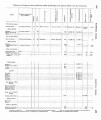| Title |
Annual Report of the Commissioner of Indian Affairs for the Year 1864 |
| Subject |
Indians of North America; Indian reservations; Federal government; Land use; White people--Relations with Indians; Railroads; Treaties; Mining; Annuities; Indigenous peoples--North America |
| Keywords |
Indian Agency; Reservations; Annual Report; Land Rights; Indian; White Relations; Inter-tribal Relations; Mining; Native Americans |
| Publisher |
Digitized by J. Willard Marriott Library, University of Utah |
| Collection Name |
Sherratt Library, Southern Utah University, Cedar City, Utah; Palmer, William R. (William Rees), 1877-1960 |
| Language |
eng |
| Description |
Excerpts concerning Utah from the Annual Report of the Commissioner of Indian Affairs - Courtesy of the University of Wisconsin Digital Collections. The Secretary of the Interior stresses the importance of having "unmolested" access to land in order to construct rail lines and complains of hostilities between Indians and whites. The Commissioner of Indian Affairs discusses access to land, treaty negotiations, and the state of affairs of the nation's Indian agencies. The Commissioner discusses two inter-tribal treaties signed in Utah territory and the possibility of opening reservation lands to white settlement. Various letters from the Utah superintendency/agency outline depredations committed by Indians, the possibility of creating mines, the importance of a timely distribution of annuity payments as a means of avoiding desperation and hostility, and relations between Indians and Mormons |
| Type |
Text |
| Coverage |
Uintah and Ouray Indian Reservation (Utah); Utah; Washington (D.C.); Salt Lake City (Utah) |
| Format |
application/pdf |
| Rights |
Digital Image © 2011 America West Center. All Rights Reserved |
| ARK |
ark:/87278/s64b5x08 |
| Creator |
Dole, William P., approximately 1818-1889 |
| Date |
1864 |
| Spatial Coverage |
Fort Duchesne (Utah); Uintah and Ouray Indian Reservation (Utah); Utah; Washington (D.C.); Salt Lake City (Utah) |
| Setname |
uaida_main |
| ID |
368487 |
| Reference URL |
https://collections.lib.utah.edu/ark:/87278/s64b5x08 |













































































